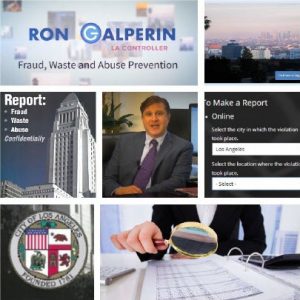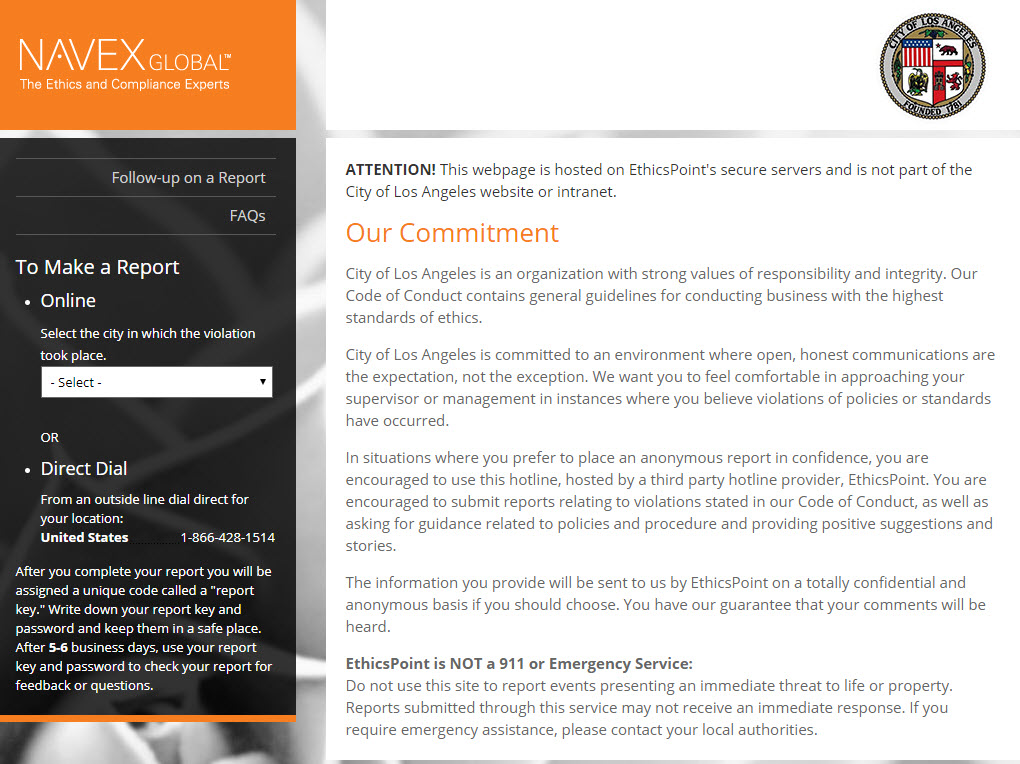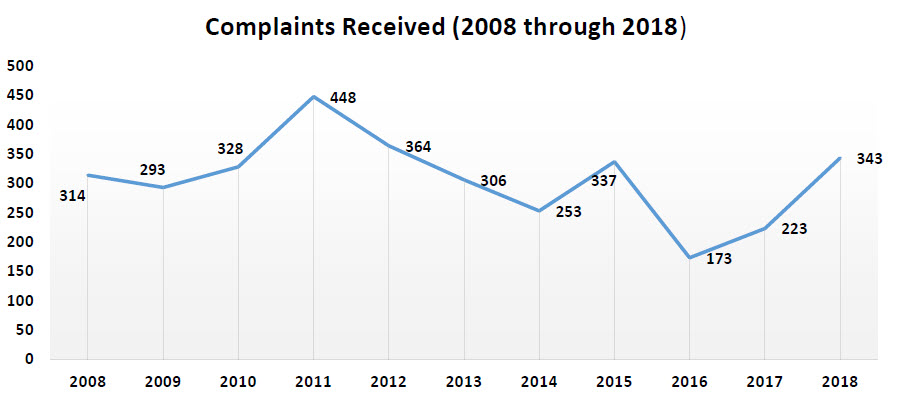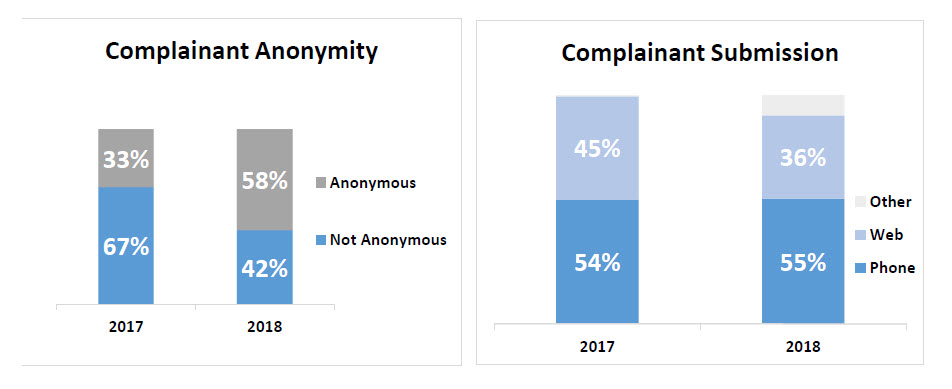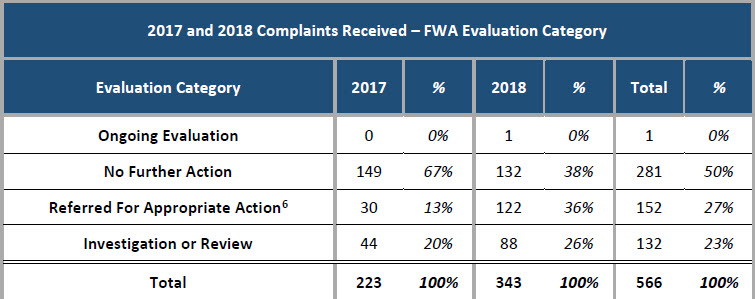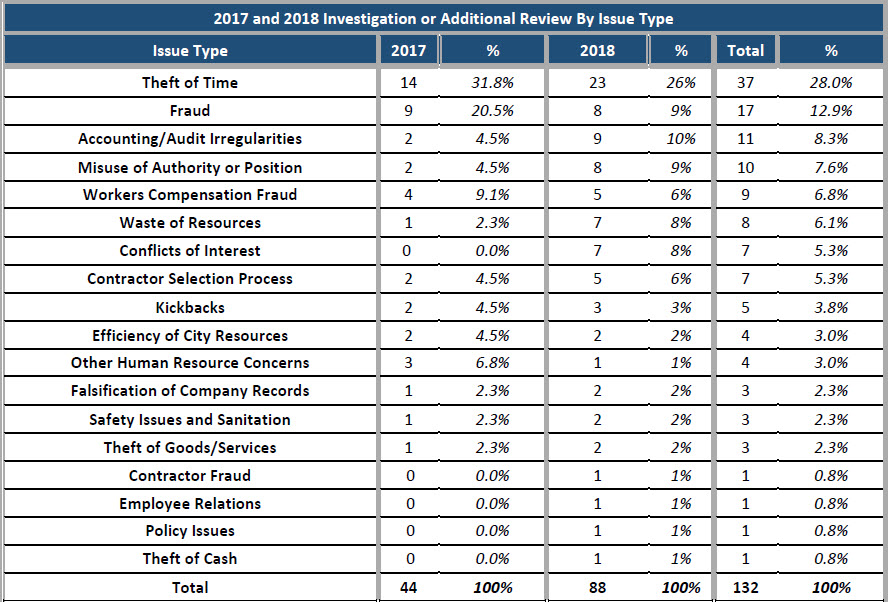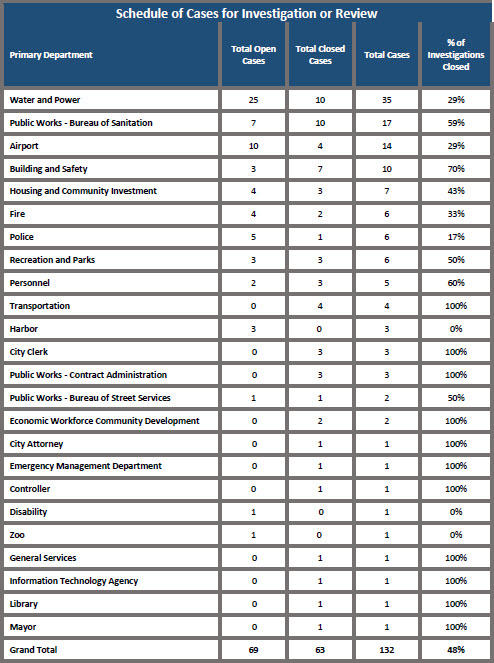Background
In 2004, the Office of the City Controller began tracking reported allegations of fraud, waste and abuse (FWA) of City resources, which led to a proposal to establish an independent investigative unit. In September 2005, City Council approved the proposal and formally established the FWA Unit within the City Controller’s Office to screen, monitor, and investigate allegations of FWA involving City resources. In 2008, an ordinance was added to the Los Angeles Administrative Code (LAAC) setting forth the powers and duties of the FWA Unit.
The objective of the Unit is to identify, stop, and deter FWA involving City resources. To help support the integrity of City operations, the Unit receives, analyzes, investigates, and reports on allegations of FWA that impact City resources. Examples can include theft of City assets, payroll fraud, contract bid rigging, bribes, kickbacks, and gross mismanagement.
Except as prohibited by applicable law, LAAC Section 20.60.4 requires City departments and appointed Offices to report to the Controller’s FWA Unit matters involving potential FWA within ten days of discovery of information that reasonably indicates that the matter involves FWA of City resources. City departments and appointed Offices are also required to concurrently report the matter to the Ethics Commission. The LAAC provides the following definitions for fraud, waste and abuse:
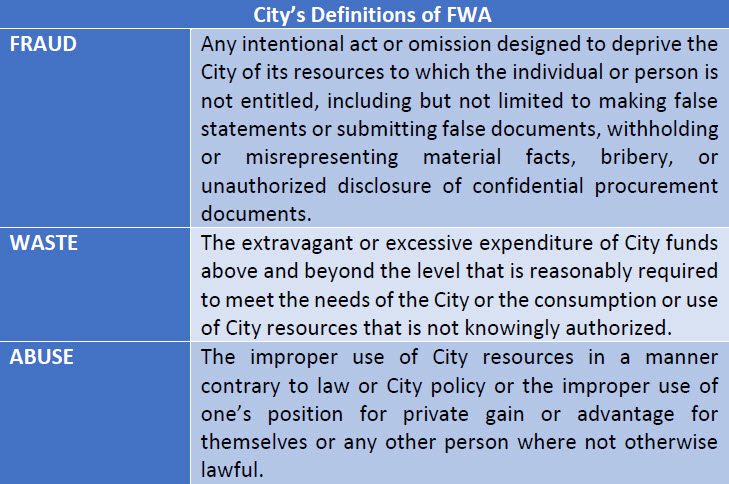
The FWA Unit may receive complaints from any City department, Office, or employee, as well as any member of the public through a telephonic and web-based hotline.1 Any person submitting a complaint or allegation to the FWA Unit may do so anonymously.2
In 2017, the Controller’s FWA Unit established a liaison program, whereby each City department designated a departmental employee who is responsible for reporting to the FWA Unit any allegations of fraud, waste and abuse arising in their department, and to coordinate the completion of complaint investigations referred by the FWA Unit.
Specific information regarding Unit investigations may not be disclosed except as necessary to conduct the investigations, carry out referrals for appropriate action, or as required by law.
Complaint Evaluation Process
The FWA Unit completes an evaluation of every complaint received. The evaluation includes a thorough review of all information submitted by the complainant and can include a review of City or other public databases and other information to thoughtfully evaluate the allegations. After completing the evaluation, the FWA Unit will determine whether the complaint allegations require: 1) no further action; 2) referral to a City Department or other jurisdiction for review and appropriate action, or 3) investigation or review. A complaint may be closed with no further action if the allegations do not involve City resources, if they lack sufficient information to complete an investigation, or if they appear opinion based.
A complaint may also be closed with no further action if the risk reported has been addressed through a City policy change, or if it is the subject of ongoing litigation. The FWA Unit will refer a complaint about the review and appropriate action if it appears to involve a risk management or customer service concern that does not warrant an investigation or that is not necessarily FWA.3
If the FWA Unit determines an investigation or additional review is required, it will also evaluate whether another City department should complete the investigation or whether it will be retained by the FWA Unit to investigate.4 The Unit may also conduct joint investigations with other entities as appropriate.

